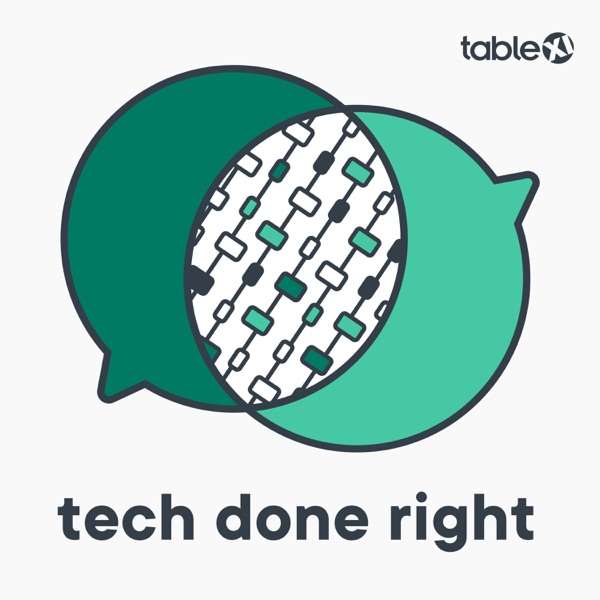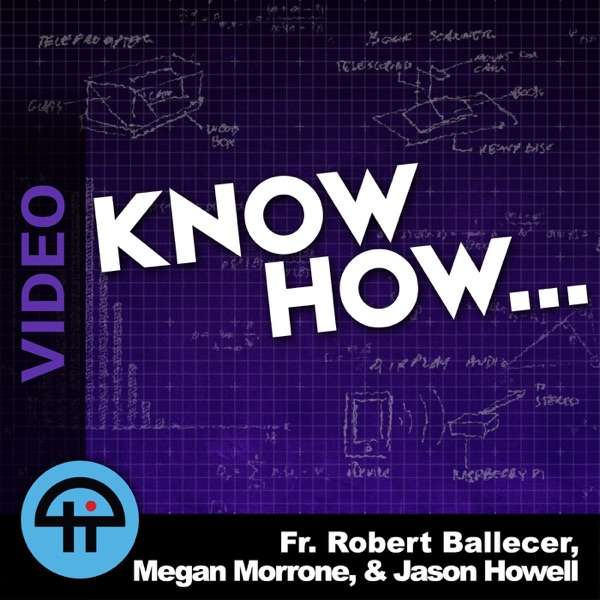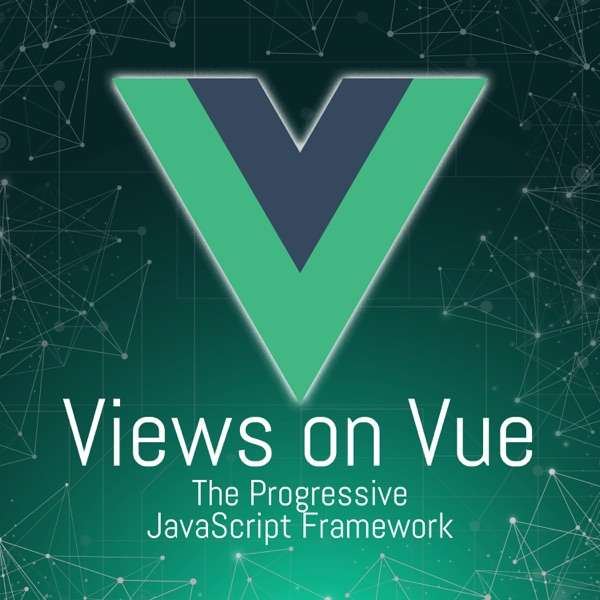My guest on today's show is a Staff Operations Engineer from Zendesk. He describes himself as a Linux systems geek with a passion for making systems serve great content. And he is recognized as an expert in metrics and monitoring, about which speaks, as well as a featured panellist for the MonitoringScale Live community panel.
EPISODE DESCRIPTION:
Phil's guest on today's show is Jeff Pierce. He has been working in the industry since 2003 when he started Coldflare Internet Services. Later, he moved into systems administration working for several firms.
Jeff then changed direction a bit, taking up a role as a senior systems engineer for Apple in 2011. Then again when he started work as a DevOps Engineer for Krux Digital and a Senior DevOps Engineer for Change.org.
After a few years working as a software and infrastructure engineer, he is now Staff Operations Engineer for Zendesk. He specializes in automating large clusters of Linux systems. Metrics and monitoring are his other passions. He is an expert in this field and regularly speaks on this subject. Jeff was also a featured panelist for the MontoringScale Live community panel.
KEY TAKEAWAYS:
(00.49) – Can I ask you to tell us more about the metrics and monitoring that you focus on and speak about? Jeff starts by pointing out the only way to do effective system administration is to have access to good software data.
You need that data to be gathered automatically. Over the years, Jeff has focused on making sure companies are able to collect the data they need to be able to scale things and optimize what they are doing.
(1.26) – So, you are following the principle – if you can't measure it you can't improve it. Jeff agrees but explains that it is a little more than that.
He says if you can't see what your system and software are doing, you are already broken. You just don't know it yet.
(1.44) – Can you please share a unique career tip with the I.T. Career Energizer audience? Jeff's advice is not to share your salary with your new employer. This is because they will simply offer you a percentage over what you already earn.
If you want to make sure that you are paid the market rate, keep your salary history to yourself. Let it be known that you want to be paid a certain percentage over the market rate and let them negotiate from there.
In fact, in the US in Massachusetts employers are no longer allowed to ask future employees how much they earn. The authorities are recognizing that being able to do this gives firms a huge amount of power over prospective employees. Continuing to base what they pay on what previous employers is only making pay gaps worse.
(4.16) – Can you tell us about your worst career moment? And what you learned from that experience. Interestingly, the experience Jeff shares turned out to be a combination of the best and the worst moment of his career.
It happened when he was working for the petition site change.org. They help campaign groups and people to put pressure on government and corporations, using petitions, to literally drive change.
About four years ago they were involved in using petitions to stop the dog eating festival in Yulin, China. The data involved was huge. So much so that it uncovered a bug in their Galera MariaDB Cluster.
The error caused every node to go into data protection mode. When all your nodes go down like that you do not have a cluster anymore. Instead, you end up with four separate servers. In their case, there was also a fifth arbitral process in place to break ties.
The nature of the problem meant that their 4th server was serving virtually the whole site while they worked on the bug. Fighting to keep the site online at a time when they were getting four times more traffic than normal was a challenge. There were other issues too.
On the one hand, existing on a few hours sleep and working in a highly stressed environment, was awful. For any engineer that time spent fire-fighting keeping the system going knowing that you could not fix it yet, for five straight days, was a nightmare scenario.
But, it was also one of the best times. The strength of the team he was working with shone through. Plus, he learned a huge amount from getting the system into working order. That learning carried on for weeks after as they forensically examined what had happened. He delved into areas of the system and technologies he had barely touched before.
(11.12) – What was your best career moment? Deploying the first piece of code he had a hand in writing into production was a real highlight for Jeff. He had just moved from the ops side to DevOps, so he knew it had the potential to make a big difference and help a lot of people because they were able to make it Open Source.
For change.org having the ability to store the stats in Cassandra was very helpful. It is a no sequel database format, which means that it is highly scalable. Exactly what they needed, at the time, although now they have moved on to using DataDog. But, when Jeff wrote and deployed the code it was a step change.
At this point, Jeff reminds the audience of the value of Open Sourcing something you wrote in terms of energizing your IT career. Being able to do this demonstrtes to a prospective employer that you are good at what you do. So, good that you are confident enough to put your work out there so others can use it. To this day, Jeff mentions it to hiring managers. They are still impressed by it. Coming up with a fresh idea and being able to take it to the point where it is available for general use proves you have a good skill set.
Learning code is a lot like learning how to play the guitar. At first, you can only play one chord and you struggle with that. You think you are never going to get it. But, you persist and practice your chords. Before you know it you can play a song.
(19.38) – What excites you about the future of the IT industry and careers? To use a cliché "software is eating the world." It is everywhere, which is really exciting because the possibilities are endless.
Now, anyone can easily put a product out on the internet using the products Amazon provides. When Jeff was working in the field of systems administration you had one manager for every 50 servers minimum. Now AWS and Google Cloud are available, one person can manage huge scalable systems.
Nowadays, nobody asks you what is the biggest environment you have managed? They just want to know that you are familiar enough with the software so you can run the system.
Of course, this shift means that you do not need as many system administrators. But, fortunately, these days, as one door closes, others open up. No matter how smart the devices and tech are, end users will always need some sort of support.
The robots that are used to automate tasks still need to be maintained. There will always be a geek working in the background.
There are still plenty of opportunities for those who want to get involved in the industry. The list of possibilities is endless, which is also exciting.
(23.34) – Phil comments on that the fact it is impossible to predict what will happen next. Jeff agrees this is exciting. Ten years ago he thought Linux branded zones which are sometimes called Solaris Containers would be huge. But, Docker came along and totally changed the landscape. Set up properly, with all of the right permissions in place it is safe to give junior system admins access. Plus, you can guarantee that everything will work once it goes into production. Even more surprising was seeing the GPU becoming big again. In the IT world, you can never be sure what will happen next.
(25.32) – What drew you to a career in IT? Jeff has been a computer geek since he was a kid when his dad bought him a BC286 from ComputerLand. Jeff loved using it from the start. It had a 640k ram, 10 times more than they used to get to the moon. At the time, Bill Gates said that was all the ram anyone would ever need.
When it broke it was too expensive to have it repaired. So, he learned how to do it himself. He loved solving puzzles, so when he realized he could do it for a living, he leaped at the chance. Jeff is on the spectrum, so without IT, he is not sure where he would be today. Being able to work in the industry opened up the chance for him to earn good money and find work easily.
(26.06) – What is the best career advice you have ever received? It came from his dad who insisted that Jeff learn a trade. He was an auto mechanic. When he could no longer physically do the work, he switched to teaching auto mechanics.
Jeff did not get much formal education. But, once he realized he wanted to work in IT he approached learning how to do it and building his career as if it were a trade. From the start, he realized that he would only master it if he practiced.
Repairing someone's PC is not dissimilar to fixing someone's car. In both situations, the person handing it over to you does not really understand how it works. So, they have to trust you to do it for them.
(27.38) - Conversely, what is the worst career advice you've ever received? Someone once told Jeff to stay at least a year with each company. There will be times when things will not be working out. In that situation, staying the year just does not make sense.
If you are learning something and have no problems with the work environment, by all means, stay at least a year. If not, don't be afraid to move on.
Of course, during the interview, you will find that hiring managers will ask you why you left so soon. But, there is no need to be worried about that. Just be honest. For example, they just weren't a good fit or I was just not learning anything there. It is best to prepare a good answer prior to the interview.
Jeff was fired once. At the time, he was suffering from depression and it was affecting his work. He has been hired twice since then. In both interviews, he disclosed what had happened and still landed the jobs.
(29.40) – If you were to begin your IT career again, in today's world, what would you do? Jeff says he would go to a code boot camp. Some of the brightest people Jeff has worked with have done attended coding camps like Hack Reactor and Hackbright Academy.
It is a great way to get into coding. Unless you are involved in developing leading-edge technologies like AI or neural networking you don't really need a computer science degree. For many people, it turns out to be a waste of education. Even with a first class degree in all likelihood, your first job is going to be something like working on a mobile API or website.
(32.44) – What are you currently focusing on in your career? Right now, Phil is building his online presence back up by using social media. He is also planning to speak more again.
But, top of his list is getting more involved in educating others. He wants to mentor more.
Jeff only learned to code in 2011. So, he is still developing his DevOps skills.
(34.42) – What is the number one non-technical skill that has helped you the most in your IT career? Jeff is autistic so he has had to actively learn people skills. For example, looking someone in the eye when having a conversation does not come naturally to him. In fact, he still can't quite do it, but has learned that looking at someone's forehead is close enough. Focusing on and honing these skills has enabled him to progress within the industry. Today, he is better than most people at things like navigating a crowd or public speaking.
(37.40) - What do you do to keep your own IT career energized? Jeff finds taking on side projects keeps him energized. Often it is his non-IT interests that determine what he does next.
For example, he is currently learning C# because that is what the Unity game engine uses. This feeds into his desire to start his own video games company. He is a big gaming fan and is especially proud of being listed on Marvel Heroes as a member of the senior technical operations staff.
He does not like sitting on his laurels. Constantly challenging himself keeps him interested and energized.
(41.37) - What do you do in your spare time away from technology? Jeff plays the guitar and bass. He used to play in a punk band, but now mostly creates and records as a solo artist. Jeff is also a big video game fan who enjoys role-playing and strategy games.
(43.07) – Phil asks Jeff to share a final piece of career advice with the audience. Get a mentor, someone who can guide you and help you to work out what to do next.
He also advises the I.T. Career Energizer audience not to be afraid to apply for jobs for which they are not fully qualified. Hiring managers do not expect you to have every single skill that is on the list. Jeff's suggestion is to apply if you meet around half of them.
He has never met the full criteria asked for, yet has still been hired many times. On your application spend time explaining why you are a good fit for the job in the cover note you provide. Often, you will land yourself an interview.
Thirdly, Jeff explains that effective networking is key when it comes to developing a successful IT career. When you are looking for work, often, your network will introduce you to people who are hiring.
BEST MOMENTS:
(1.36) JEFF – "If you can't see what your system and software are doing, you are already broken. You just don't know it yet."
(2.11) JEFF – "Never share your salary history with a new employer. Instead, ask for the market rate plus a percentage."
(15.18) JEFF – "When you're passionate about a project you do your best work."
(21.58) JEFF – "End users always need technical support, no matter how smart the devices get."
(22.27) JEFF – "You will always need the geek behind the scenes."
(28.48) JEFF – "Don't stay in a situation that isn't good for you or for the company you are working for."
(32.04) JEFF – "For the programming side of the industry, code school is one of the best ways to get your foot in the door. "
(39.48) JEFF – "Don't get comfortable, keep seeking out something harder."
CONTACT JEFF:
Twitter: https://twitter.com/Th3Technomancer
LinkedIn: https://www.linkedin.com/in/jeffrpierce/
Website: https://almostinteresting.net

 Our TOPPODCAST Picks
Our TOPPODCAST Picks  Stay Connected
Stay Connected






